Losing weight through a low-calorie diet and exercise regimen is no easy task, whether it's a personal decision or a doctor's recommendation. However, the benefits of following a healthy diet and exercise plan far outweigh the potential health complications of unhealthy eating habits, such as lack of energy, diabetes, high cholesterol, and cardiovascular and metabolic problems. While adjusting to a healthier lifestyle may require some discomfort, it doesn't have to feel like a daunting sacrifice if you know which delicious low-calorie foods can work to your advantage on your weight loss journey.
According to the Mayo Clinic, maintaining a healthy weight is a simple equation of balancing your caloric intake with physical activity: if you eat more calories than you burn, you gain weight, and if you eat fewer calories and burn more through exercise, you lose weight. The Dietary Guidelines for Americans 2020-2025 recommend men consume between 2,200-3,000 calories per day and women stay within a 1,600-2,400 calorie range to maintain a healthy weight. However, eating fewer calories doesn't always mean eating less food. Many low-calorie foods are tasty, satisfying, and can even curb your appetite when eaten in sufficient quantities.
Weight Loss Essentials: Which Low-Calorie Foods Should You Have in Your Pantry?
As you embark on your weight loss journey, you'll discover an endless array of low-calorie foods to choose from. However, to make the most of your efforts, it's important to focus on foods that are nutrient-dense and satisfying. This is because feeling full helps prevent overeating. Several vitamins, minerals, and nutrients are particularly helpful for weight loss, including protein, fiber, vitamin C, B vitamins, iron, magnesium, and quality carbohydrates from whole foods such as fruits, vegetables, and legumes.
You may already have some of these foods in your diet without realizing it, and if you happen to enjoy a low-calorie food that is high in fiber and protein while also providing a range of vitamins and minerals, you're on the right track toward achieving your weight loss goals. However, if you're unsure which low-calorie foods offer the additional nutritional benefits that aid weight loss, don't worry - we've got you covered.
1) Cucumbers: 15 calories per cup
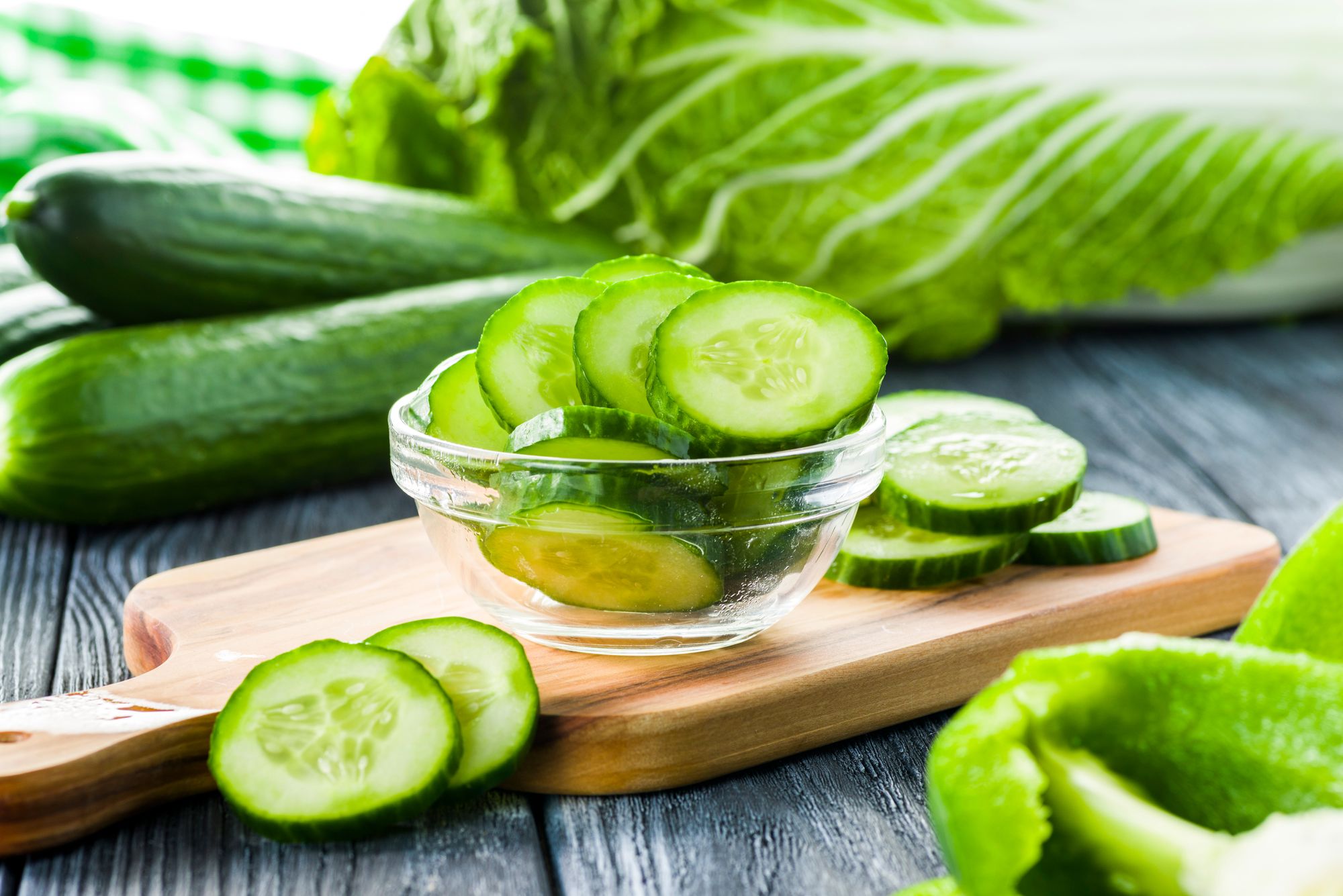
Cucumbers are a refreshing, low-calorie food that can provide numerous health benefits, thanks to their high water content of over 95%. A single cup of cucumber slices contains just 15 calories, and keeping the skin on adds an extra gram of fiber. According to a study published in Nutrients, there is a significant connection between consuming low-calorie foods and weight loss, making cucumbers an excellent addition to any diet.
2)Blueberries: 86 calories per cup
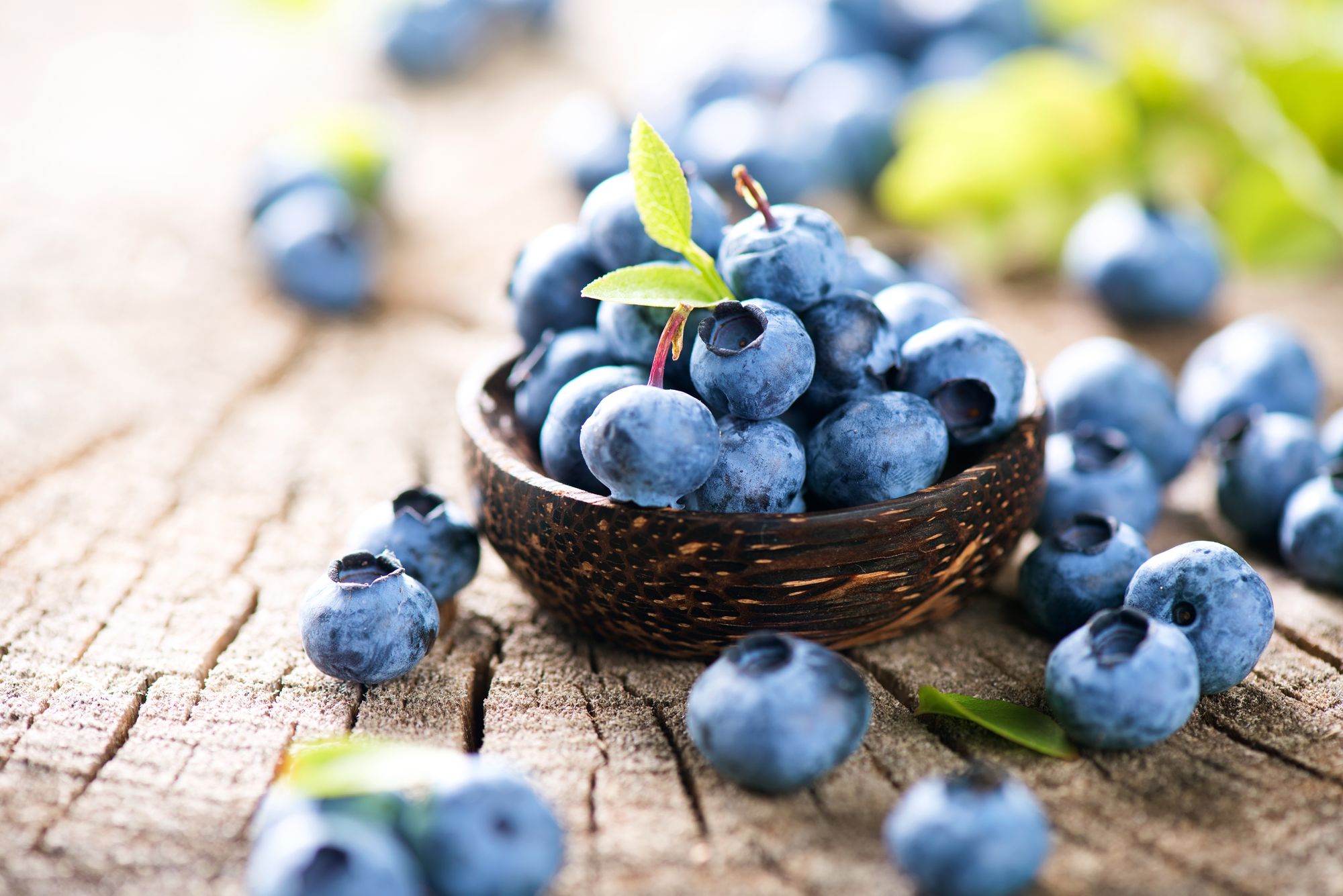
Blueberries are a nutrient-rich, low-calorie food that can support weight loss. With just 85.5 calories per cup, almost 4 grams of fiber, and 1.1 grams of protein, blueberries offer a range of benefits. Additionally, they contain various essential vitamins and nutrients that make them an excellent choice for weight loss. Recent research published in Nutrients has shown that consuming a cup of natural blueberries can be particularly beneficial for weight loss, as they can help the body burn fat during exercise.
3)Broccoli: 30 calories per cup
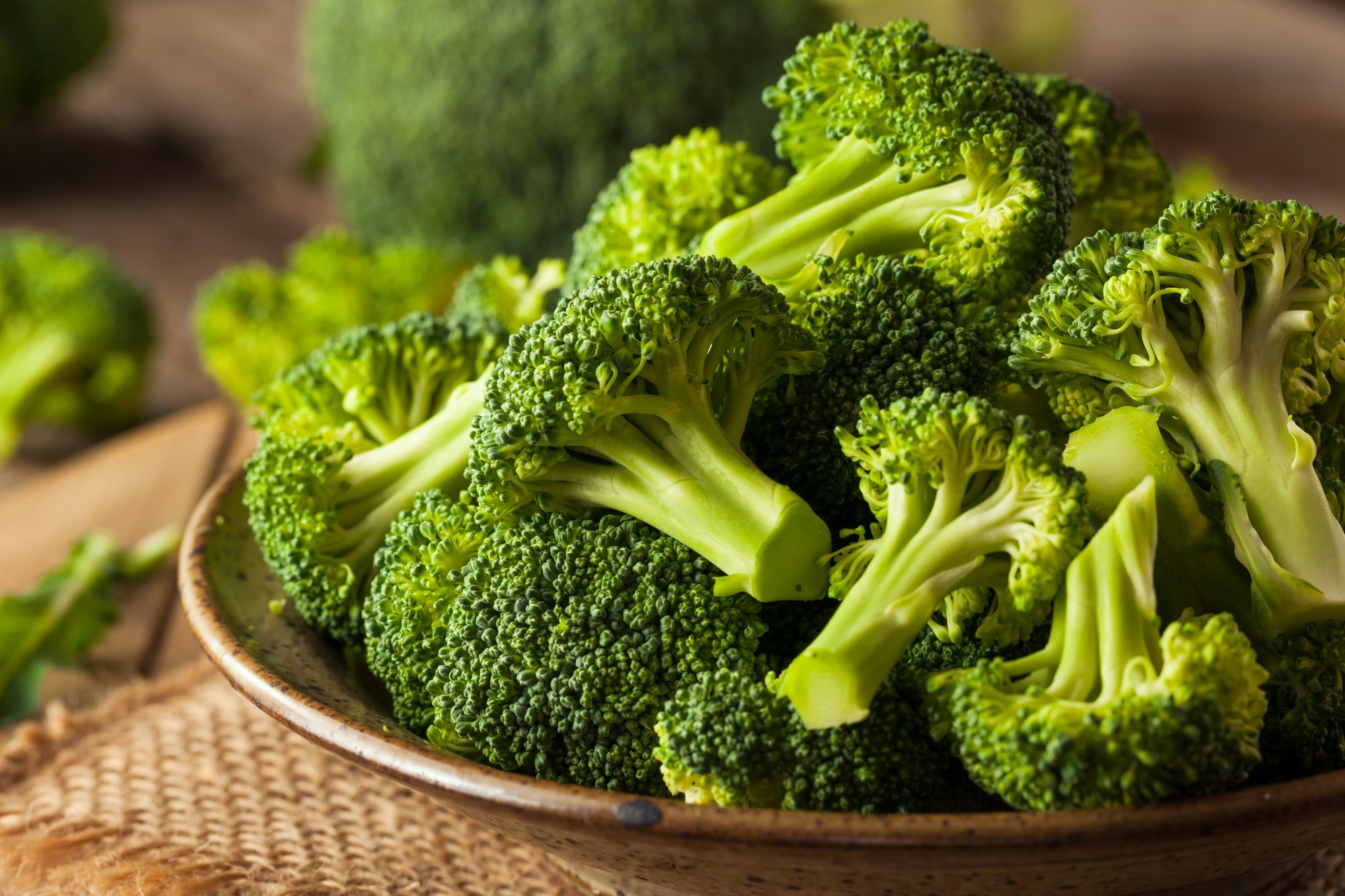
Chopped broccoli florets are a low-calorie food option, containing only 30 calories per cup, while also providing over 2 grams of protein and fiber. Additionally, a single cup of chopped broccoli contains 82 milligrams of vitamin C, which is equivalent to 90% of your recommended daily value (DV) for this vitamin. Consuming adequate amounts of vitamin C is beneficial for weight loss since it helps the body burn more fat during exercise. A study published in the Journal of Nutrition found that individuals who consumed higher levels of vitamin C tended to have a lower body weight compared to those who did not consume enough of it in their diet.
4) Grapefruit: 52 calories per half
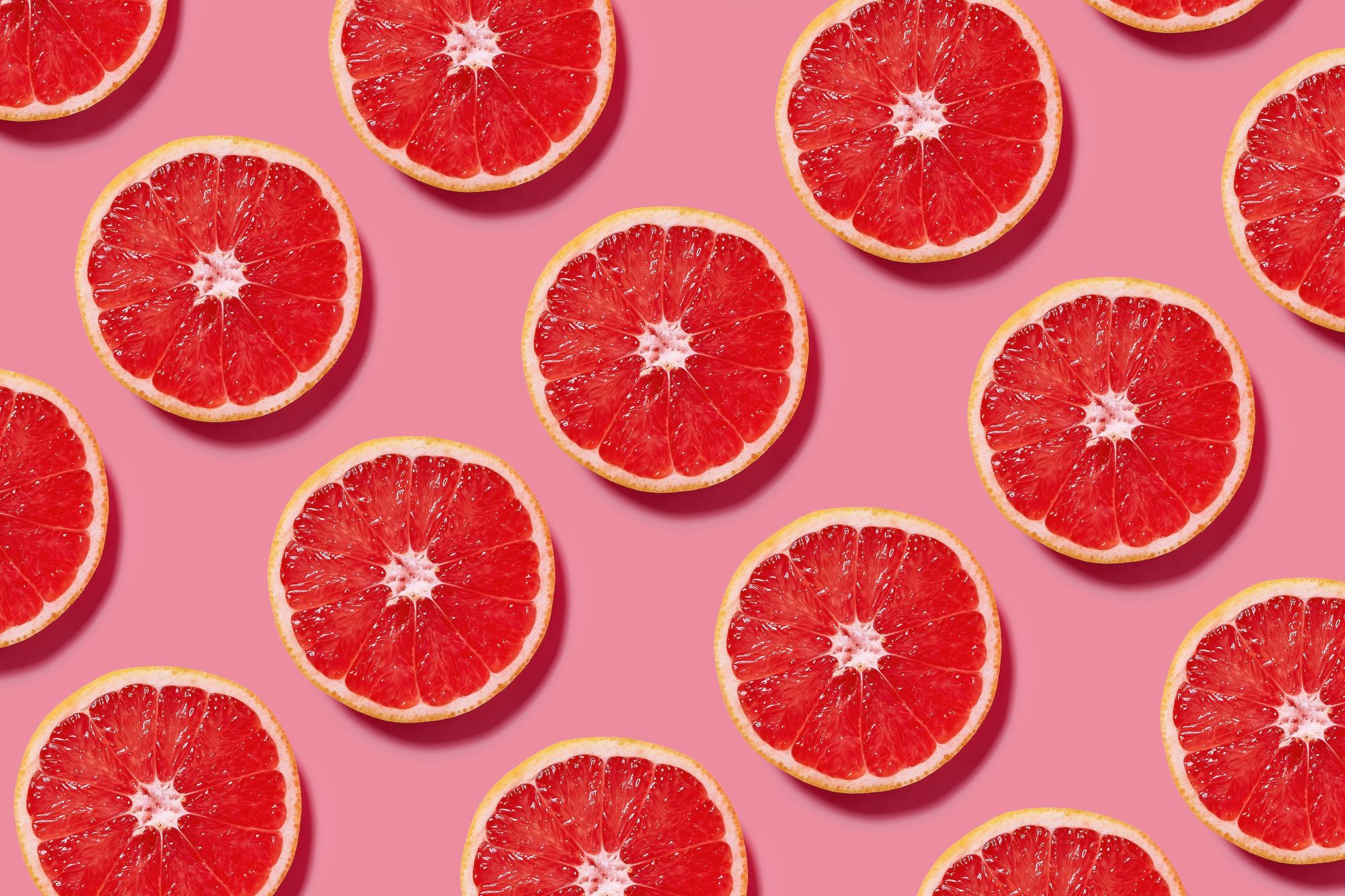
A refreshing and low-calorie option, half a grapefruit contains only 52 calories, 2 grams of fiber, and almost 40 milligrams of vitamin C, which equates to over 42% of your daily recommended value of vitamin C. While grapefruit has been associated with some questionable and potentially harmful fad diets, it can be a healthy addition to a balanced and varied meal plan. In fact, a 12-week pilot study published in The Journal of Medicinal Food found that participants who consumed grapefruit with every meal experienced significant weight loss and improved insulin resistance. Whether consumed as a snack or part of a meal, grapefruit can be a helpful aid in weight loss efforts.
5) Almonds: 164 calories per 1 ounce
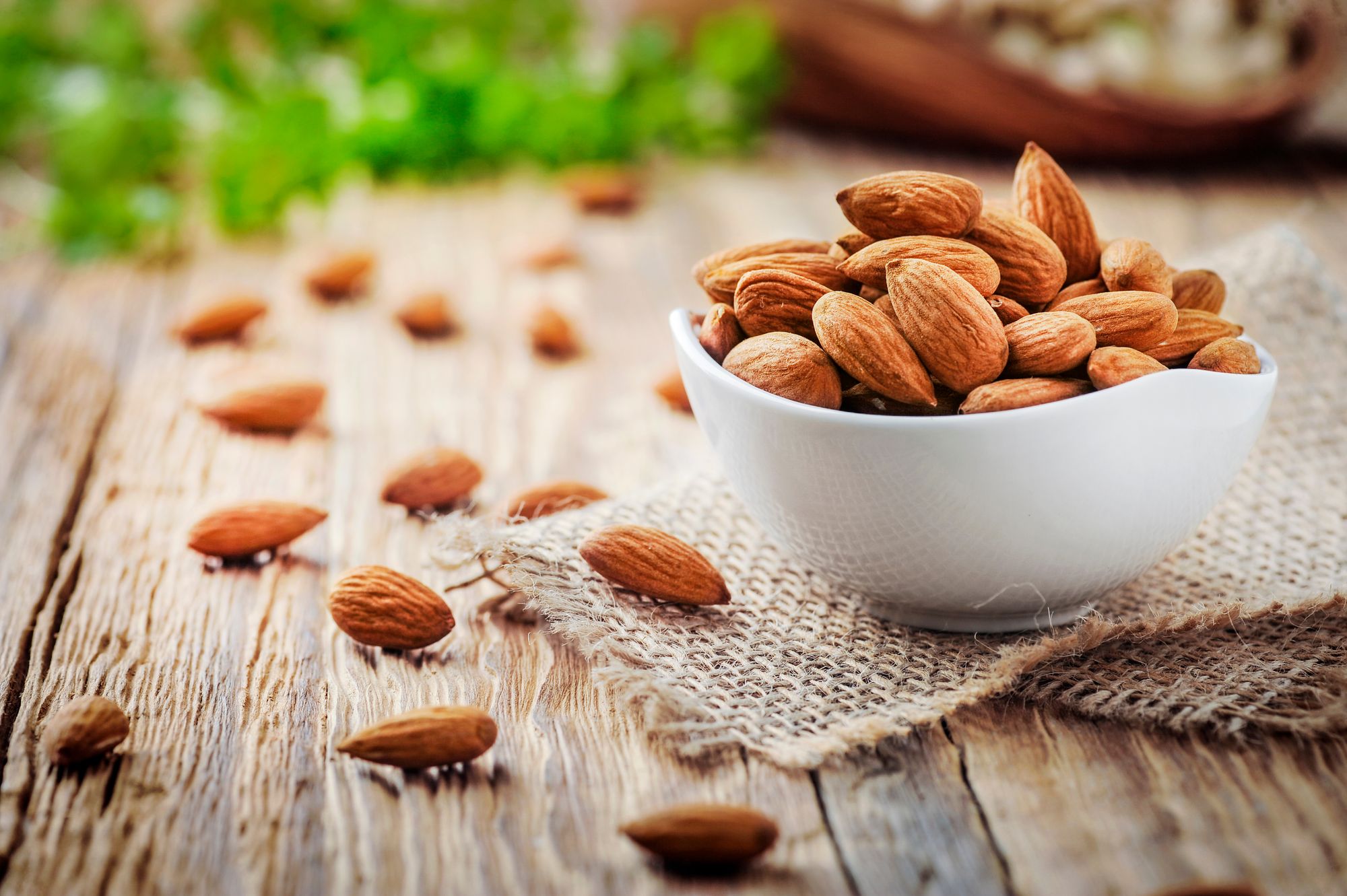
Almonds are a nutritious and low-calorie snack option, with just one ounce containing 164 calories, 6 grams of protein, and 3.5 grams of fiber. These nutrient-dense nuts are an ideal choice to satisfy hunger while on the go. As previously noted, reducing hunger throughout the day can help prevent overeating and keep you on track with your weight loss goals. Consider keeping a bag of almonds handy for a quick and healthy snack anytime, anywhere.
6) Greek yogurt: 150 calories per cup
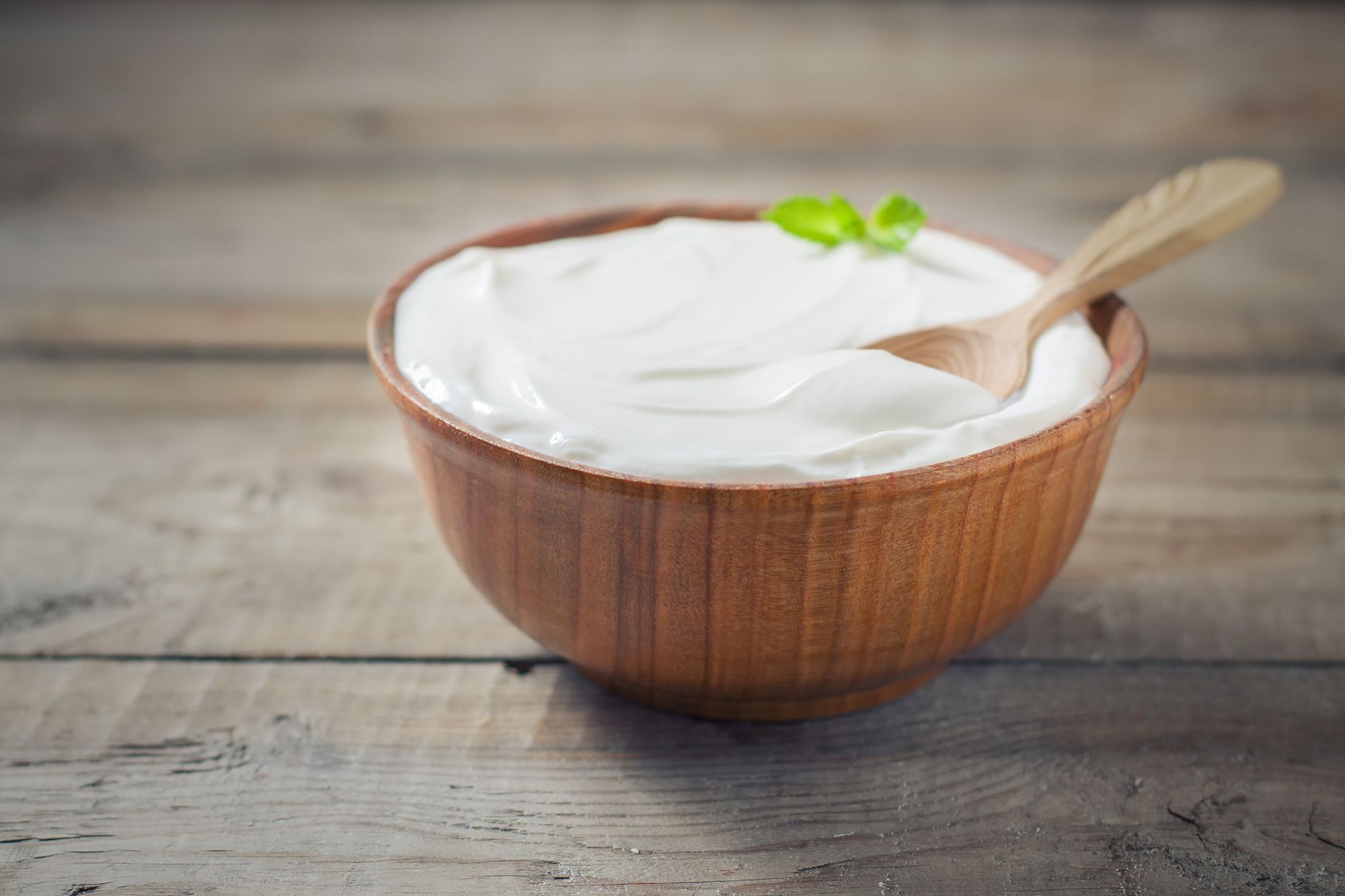
Greek yogurt is a versatile and healthy food that complements other nutritious ingredients, such as almonds, berries, cucumbers, and baked potatoes. With over 25 grams of protein per cup and less than 150 calories per serving, Greek yogurt is a filling protein source that can aid in weight loss. Research indicates that its ability to keep you feeling full may be beneficial for weight loss efforts. In a study published in Appetite, female participants who consumed high-protein Greek yogurt reported feeling less hungry and more satisfied compared to those who snacked on other protein-rich foods. Consider incorporating Greek yogurt into your diet for a satisfying and healthy snack or meal.
7) Oats: 150 calories per 1/2 cup
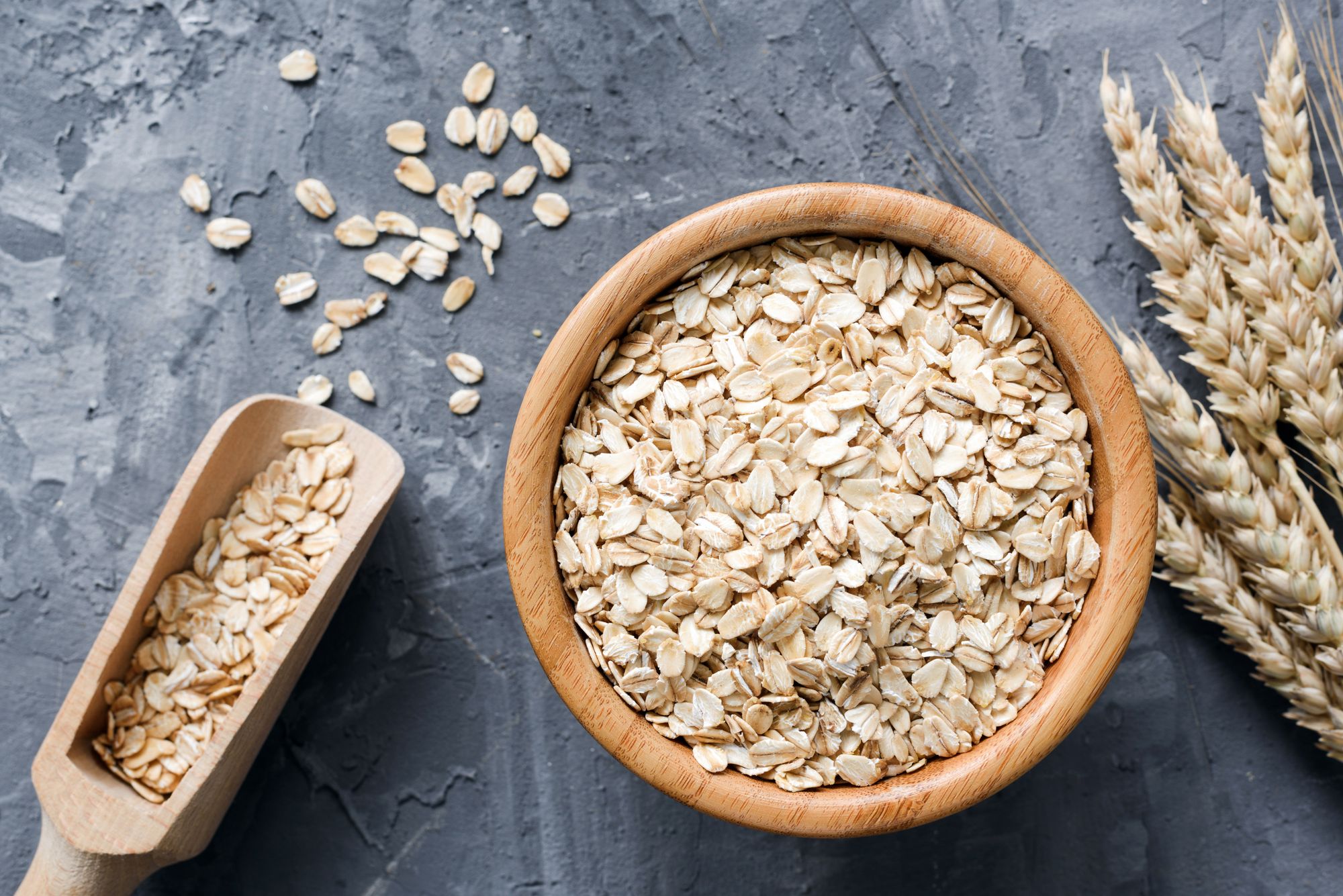
Oatmeal, like Greek yogurt, is a versatile and healthy food that can complement both sweet and savory flavors. From a nutritional standpoint, it is an excellent option for those looking to achieve their weight loss goals. Just a half-cup of rolled oats contains 150 calories, 5 grams of protein, and 4 grams of fiber. While a half-cup may seem like a small portion size, underestimating the power of its fiber content would be a mistake. Oatmeal is a filling and satisfying food that can keep you full until your next meal. Additionally, 4 grams of fiber account for 15% of your recommended daily value, making it a valuable source of this nutrient. Consider adding oatmeal to your breakfast routine for a nutritious and satisfying start to your day.
8) Raspberries: 64 calories per cup
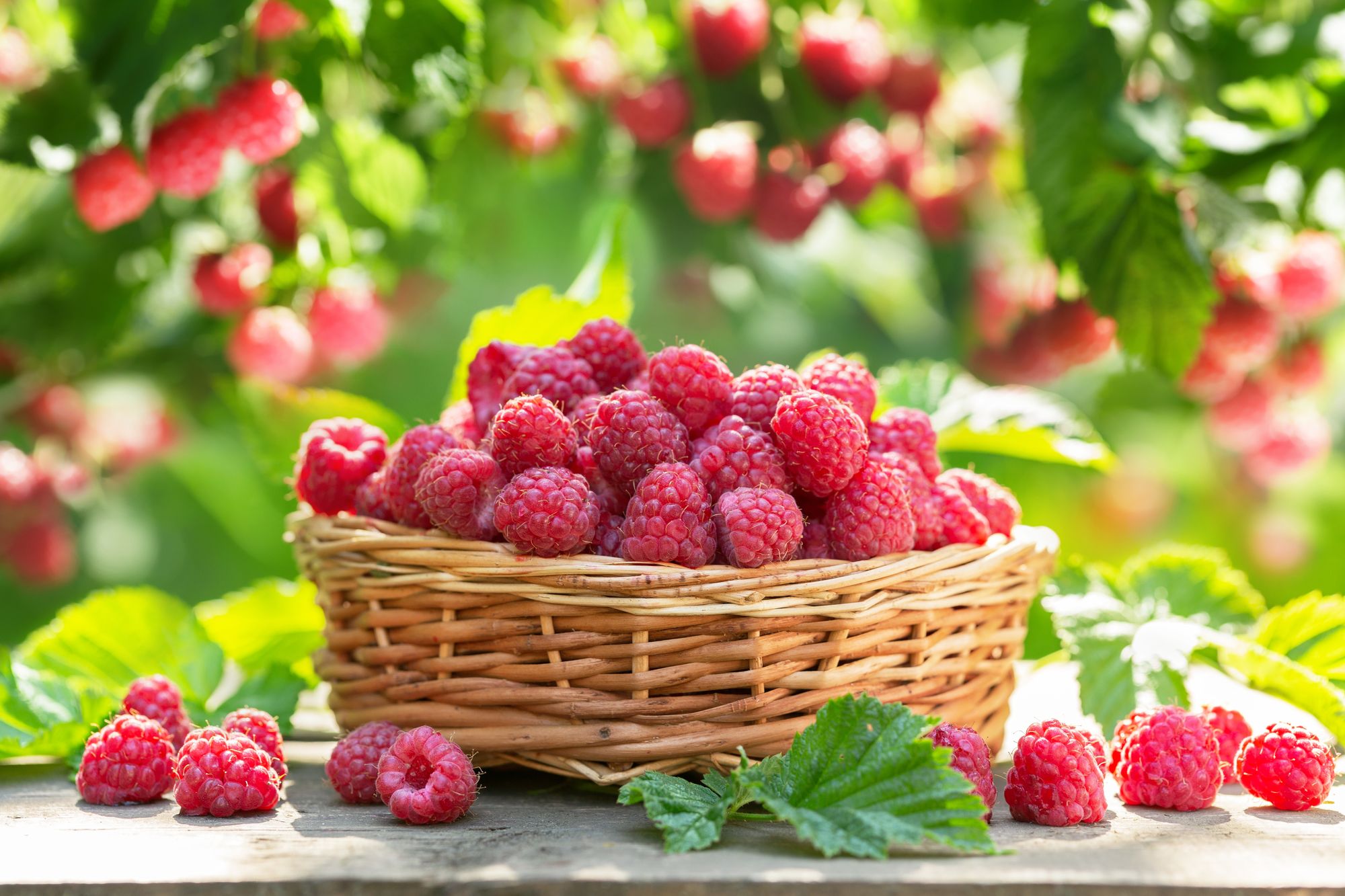
When it comes to low-calorie foods, raspberries are a must-have on your grocery list. Here's why: A cup of raspberries contains only 64 calories, making them a great low-calorie option. Furthermore, a one-cup serving provides a generous 8 grams of fiber, which is crucial for promoting satiety and weight loss. Some studies have also linked weight loss with raspberry ketone, the primary aroma compound in raspberries. Consider adding raspberries to your diet as a tasty and nutritious way to support your weight loss goals.
9) Pears: 101 calories per medium fruit
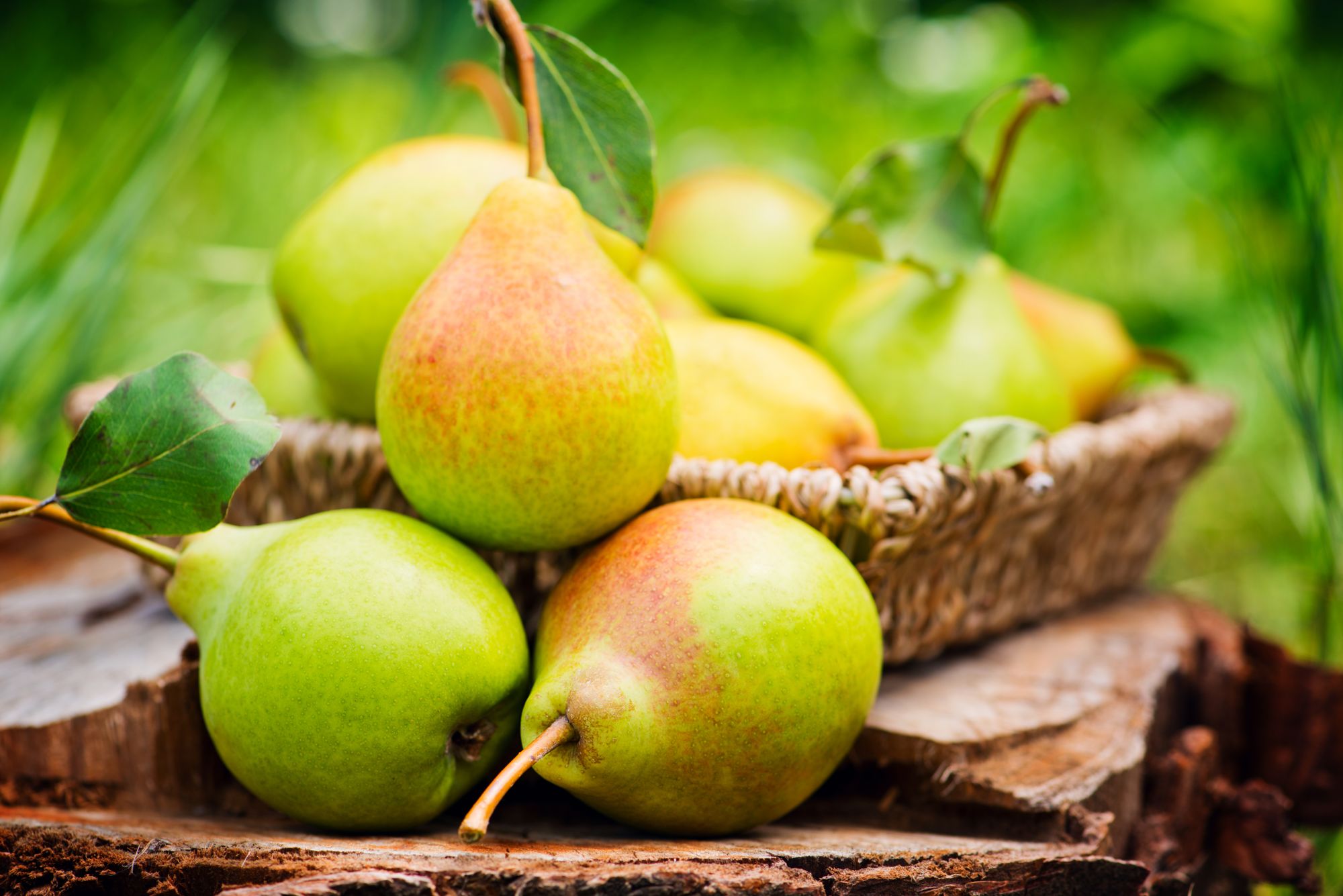
Pear slices are a low-calorie and high-fiber option that can support weight loss efforts. With just 80 calories per cup and over 4 grams of fiber, pears are an excellent choice for a healthy snack or addition to meals. In fact, a study published in Nutrition found that female participants who ate three pears or apples per day for 12 weeks experienced accelerated weight loss compared to those who consumed fewer fruits. Consider adding pear slices to your diet for a delicious and nutritious way to support your weight loss goals.
10) Peas: 59 calories per 1/2 cup
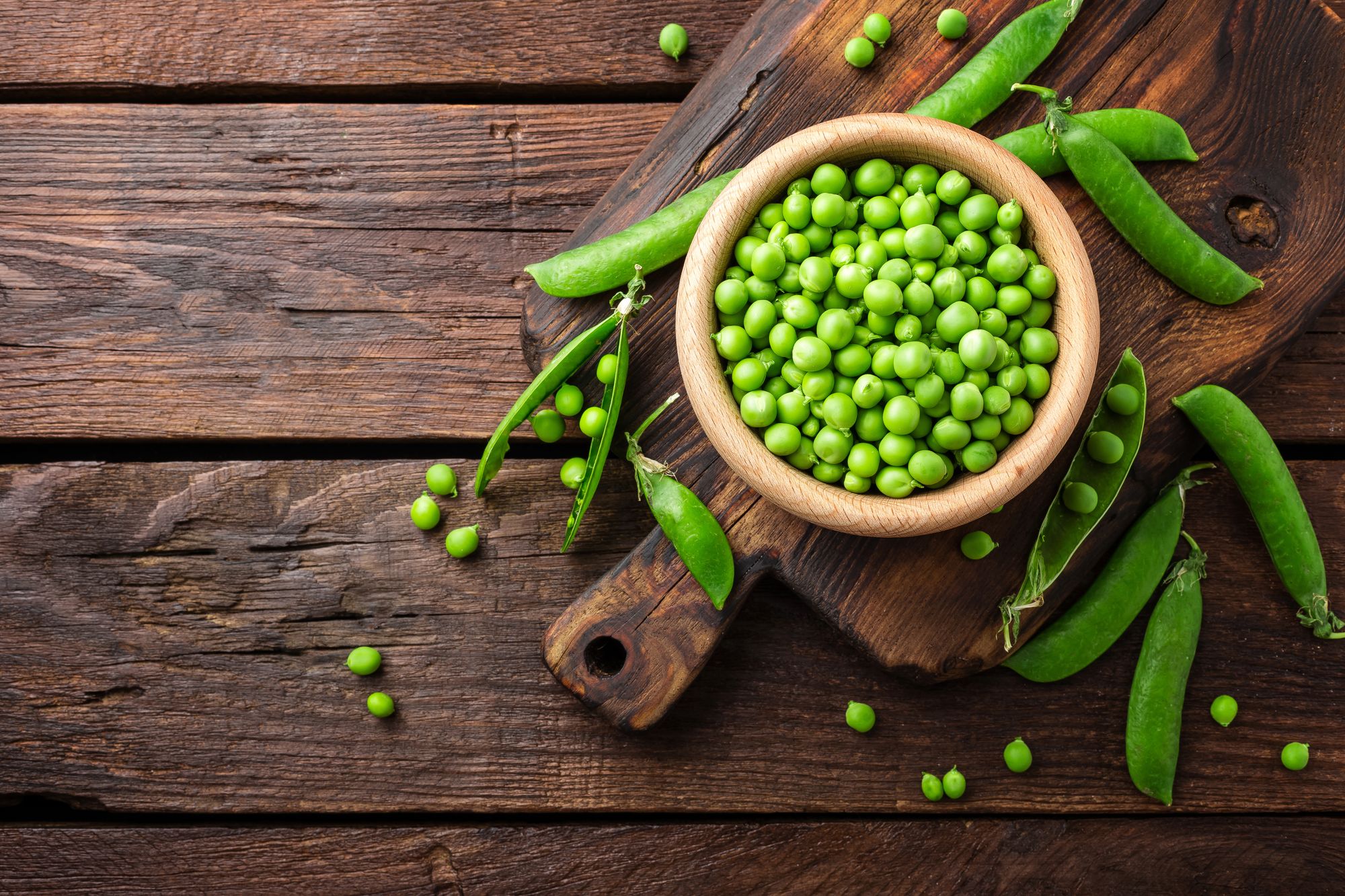
Long before his famous "What's up with that?" catchphrase on Saturday Night Live, Kenan Thompson was promoting the benefits of peas on the Nickelodeon sketch comedy show All That. As his quirky lunch lady character Ms. Piddlin, he sang about the health benefits of peas to the students of Dullmont Jr. High. Ms. Piddlin's advice is backed by science: just one cup of peas contains 117 calories, 8 grams of fiber, and 8 grams of protein, making them a nutritious addition to any diet. Peas have also been linked to weight loss, along with other legumes like beans, lentils, and chickpeas. If you're looking to shed some pounds, take Ms. Piddlin's advice and "give peas a chance."

